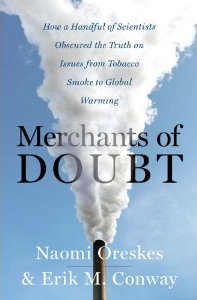
Logo of the March for Science
Where to start
Science shapes our lives, especially in the Anthropocene. Everybody loves modern science … that is, until we don’t, because scientists say something we don’t like.
Of course, in a technological society like ours everybody uses science and benefits from it. You are reading this on some kind of device that is the product of a long line of research in basic science and applied engineering. Without science and technology, you would not a have a cell phone or computer. More dramatically, you and I are most likely only alive because of modern medicine—the application of antibiotics, vaccinations, improved drugs, and better care. Think about it: without modern science you, many members of your family, many of your friends would not be alive.
Scientific research and development allows countries and cultures to lead. The US took over leadership in science from Germany during and after WWII and stayed in that position until now. However, the terribly poor handling of the COVID-19 crisis, with its deluge of lies, disinformation and outright conspiracy theories coming from the country’s leadership points to a divided country, where at least some have given up on leadership through science.

Jade Belt Bridge at the Summer Palace, Beijing, from Wikipedia, CC BY-SA 3.0
We trust science every day, often without having to think about it. When you step onto a bridge you trust that the engineers who built the bridge had a solid understanding of physics and mathematics. The material scientists involved hopefully actually studied chemistry thoroughly. We usually trust all the involved experts with our life. Hardly ever does the science and engineering of building bridges become political and contentious. Few people without knowledge of bridge building ever come out and claim to know more about bridge building than the engineers. Bridges occasionally collapse, but this has not led to a noticeable movement of statics-deniers.
This makes it somewhat baffling that so many nowadays choose to selectively ignore some scientific ideas, on the grounds that they clash with some preconceived notions, mostly political or religious. This phenomenon is by no means new or fully surprising. Disinformation for political gain is probably older than science. The recent use of lies and deception opposing scientific facts, however, coming from the highest office, made me think about the relationship between facts, lies, and science again.
Scientists, science and society
Science is many different things and therefore defining the term can be very confusing, not just to the lay person. First, the word ‘science’ refers to a process. It is a way to gain knowledge in clearly defined ways, using strict rules and procedures. These rules differ from subject matter to subject matter, at least a little bit. In the natural sciences we use a complicated approach in which we strive to falsify hypotheses. The philosophy behind that, created by Karl Popper in 1935, is that we slowly but surely arrive at strong support for a certain hypothesis by discarding alternative hypotheses we show to be incorrect.
That is why even the best supported theories, such as gravity or evolution can technically not be proven. The great advantage to this approach is that even the most established ideas can be challenged. If, for example, there was solid evidence for humans and dinosaurs walking the earth together we would have to reconsider the evolutionary relationship between these two groups. Relax, no such evidence exists—except maybe in video games.
The approach to gathering evidence also allows everyone to distinguish between science and everything else, especially pseudoscience. If some idea is in principle not refutable it is not within the realm of science. For example, we cannot test whether unicorns are passionate. Passion is hard to measure, but the real problem is that unicorns do not exist.
Questions that are outside of the reach of science are by no means less important or crucial, they are just not testable as scientific questions. I guess, for example, that everybody wonders about what happens after we die. Yet, because death seems to be a one-way street, science has no answers. Many religions do—but we ultimately believe religious ideas for reasons other than empirical evidence; that’s what it means to have faith.
One of the biggest problems with science is that discussion, disagreement and even fighting over what is the most current knowledge is part of the process. Furthermore, the concept of scientific progress means—by definition—that knowledge grows, interpretations change, and facts are viewed differently by the scientific community. Note that facts do not change. If the cantaloupe on my kitchen counter weighed two pounds at noon last Sunday, that fact remains, even after I cut it in half for breakfast today. And of course, there is science that is done well and science that is not.
Finally—and admittedly this can be confusing—scientists are often forced to make probabilistic statements. This is true in several areas. When physicists describe the behavior of atoms around the nucleus, they provide the location as a probability. When biologists describe the relationship between two variables, say the size of a female and the number of eggs she can carry, they use a statistical model with a margin of error associated with a mathematical function that describes how tightly these two variables are connected. Maybe most importantly, modelling of future trends—a technique we rely upon for predicting climate change—always comes with statistical error associated with it. Scientists are trained in this kind of thinking and understand the implications.
This, however, makes science vulnerable to abuse. Either through a lack of understanding or deliberately, it is easy to assert that scientists disagree about something—normal for scientists—and then to use that disagreement to argue that this something is unproven and can be ignored. Often then, the argument offered is that society must wait until the scientists have reached a unanimous consensus.
 This and other tactics have been used to cast doubt on the negative effects of sugar, smoking, poor diet, or the effects of carbon emissions by humans (Lewandowsky, et al. 2019; see also the classic study by Oreskes and Conway, Merchants of Doubt). Unsurprisingly, the companies that profit from making sugar, tobacco, and oil often are bankrolling such denialism. This manipulative tactic does not work well on scientists, but the general public sometimes has a hard time distinguishing between a normal and healthy debate about a topic within the scientific community, and a hostile, yet unsubstantiated attack from the outside. I don’t blame the general public; the deception is usually well done.
This and other tactics have been used to cast doubt on the negative effects of sugar, smoking, poor diet, or the effects of carbon emissions by humans (Lewandowsky, et al. 2019; see also the classic study by Oreskes and Conway, Merchants of Doubt). Unsurprisingly, the companies that profit from making sugar, tobacco, and oil often are bankrolling such denialism. This manipulative tactic does not work well on scientists, but the general public sometimes has a hard time distinguishing between a normal and healthy debate about a topic within the scientific community, and a hostile, yet unsubstantiated attack from the outside. I don’t blame the general public; the deception is usually well done.
Let’s have a quick look at one example: Evolutionary theory has long been under attack by critics motivated, and often paid, by religious groups. These critics may have a PhD, even in biology, but they are almost never experts on evolutionary theory. And although there are typically thousands of experts on one side of these debates and only a few on the other, nonetheless they can give the public the idea that there is a legitimate debate when there really is none. However, critics use their academic degrees to lend credibility to an argument that actually does not exist. Often the critics are just loud but demand equal time in debates. Why journalists agree to reporting “both” sides is a different story. If they gave dissenters time and attention proportional to their numbers, the voices of climate change deniers, for example, would all but disappear.

Barbara McClintock (1902-1992), Department of Genetics, Carnegie Institution at Cold Spring Harbor, New York, shown in her laboratory.
To be fair, sometimes mainstream science ignores dissenting scientists and later has to admit that they were actually correct. An example for this would be the discovery of jumping genes, or transposable elements, by Barbara McClintock. Her work was dismissed and ignored at first, but later, as evidence increased, her findings came to be considered mainstream, and she won a Nobel Prize for her studies. There is a huge difference between internal processes of scientific dissent like this, and the politically motivated denial of science. Namely, over time, evidential support for the dissenters increases until it becomes overwhelming, while usually deniers are forced gradually to acknowledge that their purported counter-evidence just isn’t persuasive.
Thinking about whose voices we should listen to in debates about matters that affect the public leads to the important question: who is an expert? Anybody can be an expert—obviously you do not need to be a scientist, although all scientists are experts for their area of research. When my car is broken, I take it to a car repair shop. Sure, I can change a light bulb myself, but when the “Check engine” light comes on, I need expert advice. We do this all the time; we turn to people that know a lot more than we do and we take their advice. We consult physicians on health, accountants on finances, and plumbers on plumbing.
But if the general concept how to use experts and expert advice is so straightforward, why is expert advice sometimes so contentious, as the rejection of masks during the COVID-19 pandemic makes all too clear? Why is it so hard to listen to advice? In my next post I’ll return to this question, as well as to the difficult role scientists play in public.
Ingo Schlupp (ORCID: https://orcid.org/0000-0002-2460-5667) is a Professor of Biology at the University of Oklahoma.


Taking the mask example. Early in the pandemic, Dr. Fauci said that people shouldn’t wear masks. Or, now that the supply seems to be enough, finally I recently saw an article touting N95 masks in the popular press, which was not done much if at all previously. I agree strongly that the reasons for this disinformation (and I do think that term is strong but not unreasonable to use for both of these examples) was for what I consider to be good purposes (to allow health care workers adequate supply). However, I do think this sort of deliberate misleading of the public is going to have the side effect of making future pronouncements by scientists less believable.
Thanks for the comment. Early in the pandemic the data on non-medical masks was not clear (although there was some evidence on the utility of masks), but I think there was never doubt that surgical and N 95 masks were efficient. And, yes, now that the supply has increased, non-medical masks are probably on the way out. This has already happened in Germany. And I agree: even if dispensed for a good reason, the communication strategy regarding masks was pretty bad.